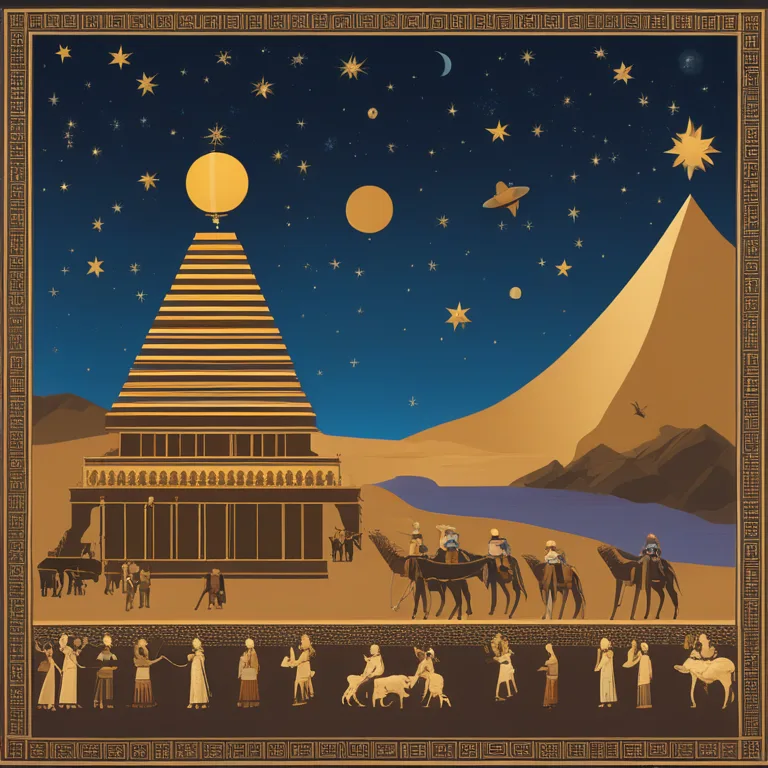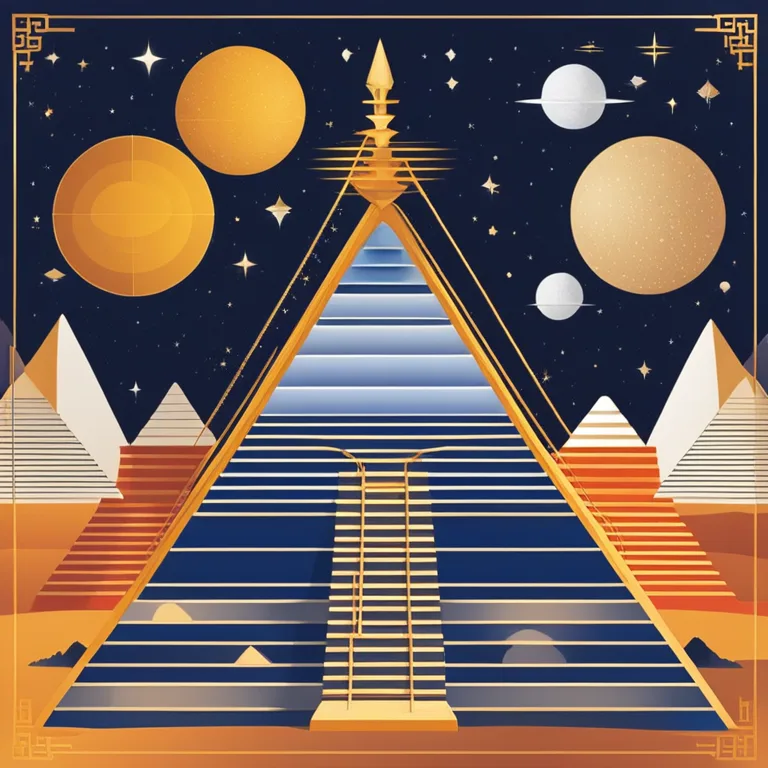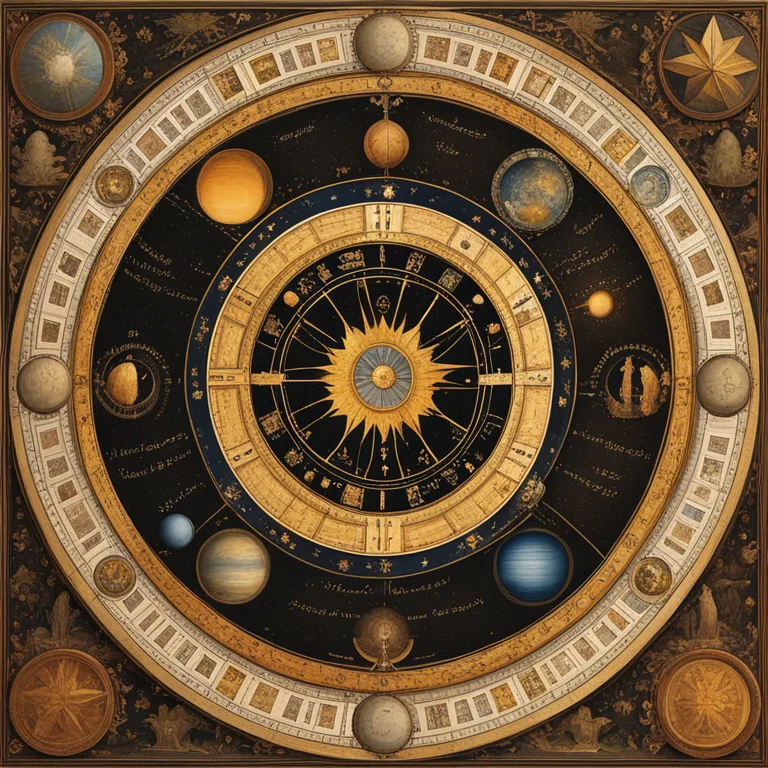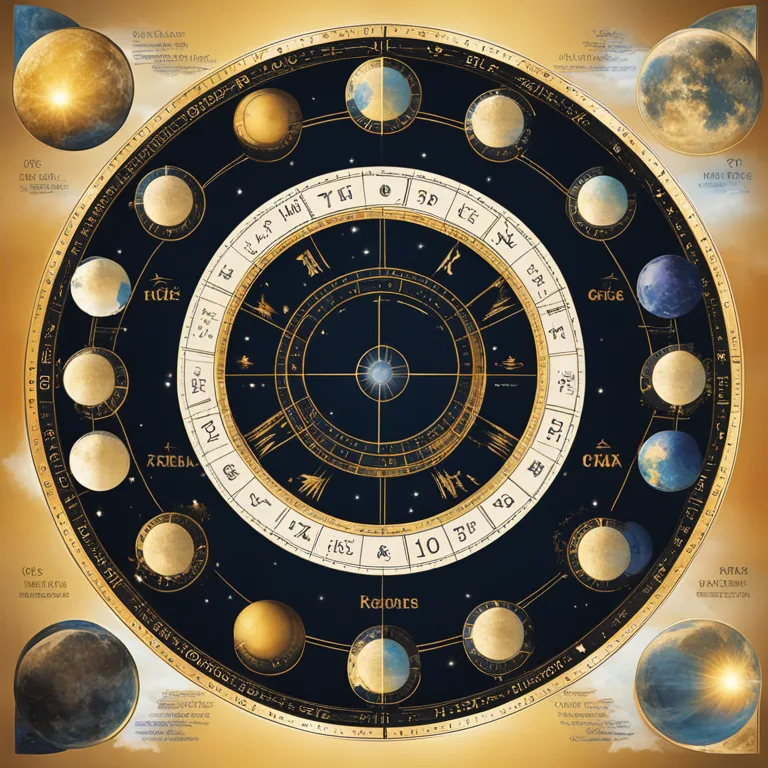
The Genesis of Astrology
Delve into the ancient roots of astrology, tracing its history from age-old civilizations to its role in modern society.
article by Priya Deshmukh
Astronomical Beginnings
The practice of astrology can be traced back thousands of years, to a time when humanity's gaze first turned to the stars. Ancient civilizations, including the Babylonians as early as the second millennium BCE, began to record the movements of the planets and stars, laying the groundwork for astrology. As these early sky-watchers charted celestial patterns, they believed the heavens mirrored earthly events, giving birth to the concept that celestial phenomena could influence human affairs.

Evolution Across Cultures
Astrology's growth is as expansive as the night sky, branching out through various cultures around the world. The Egyptians aligned their pyramids with the stars, while the Chinese developed their own system, distinct from the Babylonian zodiac. In Western tradition, astrology became intertwined with the Hellenistic culture, where it was amalgamated with the Egyptian tradition to form what we recognize today as Hellenistic astrology, the basis for Western astrological tradition.

The Zodiac's Development
Astrology's heartbeat is found in the Zodiac, a celestial coordinate system that divides the sky into twelve signs. Originating from seasonal markers used to predict celestial events, the Zodiac became central to astrology's predictive power. Each zodiac sign corresponds to a segment of the ecliptic, the apparent path the Sun takes across the celestial sphere over the course of the year, and is said to govern distinctive traits and destinies.

Medieval and Renaissance Advancements
The Middle Ages and Renaissance saw astrology flourish, with practitioners casting horoscopes and consulting the stars for both personal and political purposes. Royal courts frequently employed astrologers, and notable historical figures such as Nostradamus are evidence of astrology's influence in this era. Additionally, medical astrology, which linked the human body to astrological signs, became a standard aspect of medical diagnoses.

Astrology in the Modern Age
Despite facing skepticism and criticism, astrology has persisted and even thrived. The digital age has given astrology new life with the proliferation of online horoscopes, astrology apps, and social media accounts dedicated to astrological insights. Future forecasts, particularly for the year 2024 and beyond, continue to intrigue followers as they search for cosmic guidance in an ever-changing world.
Continuing Trends into the Future
As astrology moves into the future, it continues to evolve with trends focusing on self-discovery, empowerment, and reflection. In the years to come, the convergence of technology and astrology promises to shape the way people interact with their horoscopes, seeking personalized and actionable insights underpinned by celestial movements.
Published: 12/29/2023
Modified: 12/29/2023
More predictions
Come back here soon to learn more about yourself and your future


Birth Charts: A Beginner's Guide Explored
Delve into the basics of birth charts, the celestial snapshot of your potential. Learn how they influence personality and life in our beginner's guide.


The Essence Of Your Birth Chart Wheel
Delve into the layers of your personality by understanding the key components of your birth chart wheel, an astrological tool for self-discovery.


Your Birth Chart: Cosmic Blueprint Explored
Delve into the insights of your astrological birth chart and discover the cosmic influences that shape your personality, path, and potential.